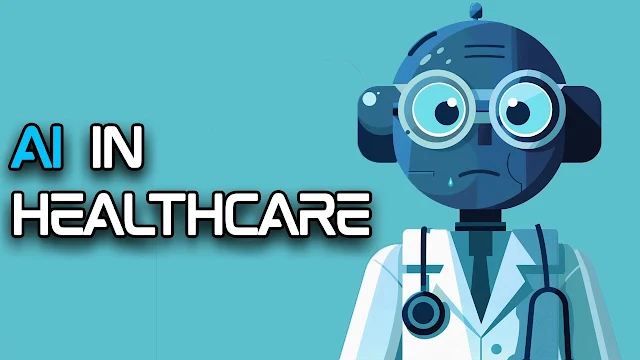
Revolutionizing Disease Detection and Diagnosis
In the ever-evolving landscape of healthcare, artificial intelligence (AI) has emerged as a game-changing force, reshaping the way we approach medical challenges. From early disease prediction to advanced diagnostic capabilities, AI is driving remarkable advancements that are poised to transform patient care and outcomes.
Early Disease Prediction: Catching Conditions Before They Manifest
The early detection of diseases is crucial for effective treatment and improved patient outcomes. Thanks to the integration of AI and the digitalization of healthcare systems, medical professionals can now harness the power of sophisticated algorithms to analyze vast amounts of data swiftly and accurately. This technological integration has revolutionized disease detection, particularly in cases like cancer, where AI-driven analysis can uncover subtle patterns and indicators long before visible symptoms appear.
Take mammograms, for instance. Historically, these screenings have been associated with a high rate of false positives, leading to unnecessary anxiety and medical procedures for patients. However, with the integration of AI, the accuracy of mammogram interpretations has skyrocketed to an impressive 99%, while the processing time has been reduced by a factor of 30. This not only minimizes the occurrence of false alarms but also streamlines the diagnostic process, ensuring that individuals receive appropriate care on time.
Enhancing Medical Diagnosis and Imaging
The integration of AI into medical imaging software has ushered in a new era of enhanced efficiency and accuracy in diagnostics. By leveraging AI algorithms, diagnostic tests are becoming more automated, precise, and expedient. This not only reduces wait times for patients but also minimizes the likelihood of human errors, thereby enhancing overall diagnostic accuracy.
AI's impact on medical diagnosis extends across various applications. AI-powered chatbots serve as virtual medical assistants, adept at engaging with patients, comprehending their symptoms, and recommending optimal courses of action. Facial recognition software represents another innovative application, facilitating the identification of rare diseases through the detection of distinctive facial features. Additionally, the synergy between AI algorithms and manual microscopic observations by pathologists can accelerate the diagnosis process, leading to more precise diagnoses and improved patient outcomes.
Transforming Surgical Procedures and Healthcare Delivery
The integration of AI and robotic systems in healthcare has revolutionized surgical procedures, enhancing precision, accuracy, and patient outcomes.
Robotic Assistance and Surgery
Robotic systems equipped with advanced imaging capabilities allow surgeons to visualize the surgical site in high definition and in real-time, enabling them to navigate delicate tissues and structures with greater accuracy. This enhanced visualization reduces the risk of damage to surrounding healthy tissue, leading to smaller incisions, reduced trauma, and faster healing for patients. Patients also experience less blood loss and have lower rates of complications with robotic-assisted surgery than with traditional open surgeries.
Beyond the operating room, the benefits of robotic assistance and AI extend to various aspects of healthcare delivery. These technologies facilitate remote consultations, telemedicine, and telesurgery, enabling patients to access specialized care regardless of their geographic location. They also support the development of personalized treatment plans and predictive analytics, helping healthcare providers anticipate and prevent adverse events.
Revolutionizing Biotechnology and Personalized Healthcare
The integration of AI and machine learning in biotechnology is transforming medication development, with the potential to transform the lives of both doctors and patients suffering from difficult conditions.
AI in Biotechnology
The use of AI in biotechnology is expected to create a $50 billion industry, with the potential to develop multiple new drugs over the next decade. This impact is evident in various ways, from significantly boosting success rates in early-stage drug development to offering cost savings for payers through earlier detection and treatment of high-risk patients. AI-driven drug development addresses long-standing challenges in traditional research and development, promising increased success rates and more cost-effective discovery methods.
Personalized Healthcare Services
Numerous institutions are embracing the integration of healthcare software and AI to deliver personalized healthcare interventions. By leveraging extensive healthcare data, AI-driven platforms can generate profound insights that facilitate tailored treatment plans for individuals. The proliferation of wearable technology, such as smart wristbands, sensorized insoles, and innovative garments, contributes to the generation of additional data streams, empowering users with vital health metrics and enabling personalized diet regimens and exercise routines.
Streamlining Administrative Processes
Artificial intelligence is revolutionizing various administrative aspects of healthcare, automating tasks such as data entry, claims processing, and appointment scheduling. This automation allows healthcare providers and organizations to allocate more time toward patient care and revenue cycle management, while also minimizing human error by offering a faster method to examine health records, medical imaging, claims processing, and test results.
By automating monotonous administrative responsibilities, AI has the potential to assist medical practitioners in saving time and money, as well as granting them greater control over their workflow procedures. This, in turn, enables healthcare professionals to focus on delivering quality care while leveraging the power of AI to streamline administrative processes.
Embracing the Future of AI in Healthcare
As we progress into a more connected digital era, the integration of AI in the healthcare sector can revolutionize the way doctors provide treatment and care to patients. The boundless possibilities of deep learning AI, from disease detection to customized treatment strategies and automated drug exploration or diagnosis, offer immense potential for enhancing health outcomes, improving safety, and diminishing healthcare expenses.
However, the true challenge lies in ensuring the seamless integration of AI into everyday clinical practice. Healthcare practitioners must be willing to collaborate alongside AI, embracing the transformative power of this technology to elevate the patient experience and deliver the best possible care. Those who fully embrace the potential of AI in healthcare will be the ones who reap the rewards of this revolutionary transformation.





.jpg)


0 Comments